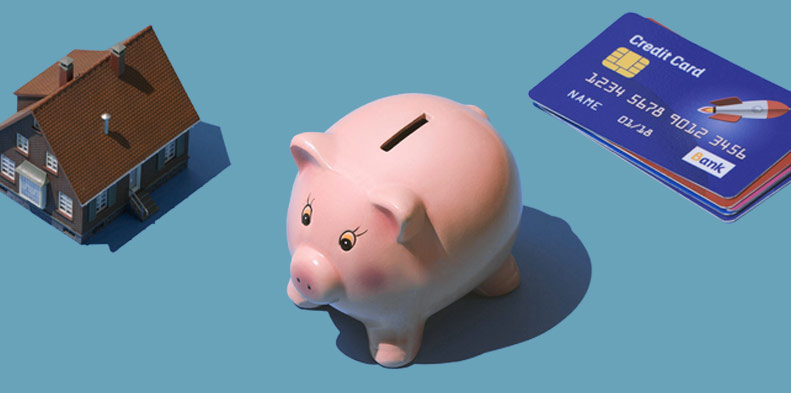
These were the 4 smartest money moves I made in my 30s
Now that I have just a few months left in my 30s (gulp), I've been looking back at all I've seen and accomplished in this decade. This includes reviewing my financial decisions, which have had major impacts on my entire life. Here are four smart money moves I made in my 30s, along with how they improved my finances.
1. Driving the same car for over a decade
I bought my current vehicle when I was 25 and used a 60-month auto loan to finance it, so I made the last payment at age 30. That car payment is money I no longer have to withdraw from my checking account each month, and not having this regular bill during most of my 30s helped me get through some less-than-ideal financial circumstances. I still pay for maintenance on my geriatric car, and I keep it insured, gassed up, and registered.
2. Always paying my creditors on time
The worst financial decision of my 20s was buying a home I couldn't afford. So I spent the first part of my 30s getting out from under that via a short sale. While a foreclosure would have been worse, a short sale is still a big credit score hit. Knowing this, I vowed to pay every bill on time in hopes that it would mitigate some of the damage. Payment history represents 35% of your score and thanks to my diligent bill paying, I managed to get my credit score back to the "good" range after the blow of the short sale. This was followed by an additional big boost after I got out of debt in 2022.
3. Changing careers
As much as I loved my old career, once it wasn't good for me mentally or financially anymore, I knew I had to make a change. It wasn't easy to go from museums to writing and editing, but with the help of a career counselor and relentlessly applying and interviewing for jobs, I made it happen. Thanks to breaking into a new field, I'm hopeful that my 40s will come with more financial security than I had in my 20s and 30s, as well as more opportunities to become a well-rounded professional. I also became a full-time freelancer, which has come with its own set of challenges, but I absolutely love the flexibility and freedom I've gained in the process.
4. Getting money help from a financial planner
Finally, I'm happy that I signed on to work with a financial planner in my 30s, in the wake of changing careers. I felt a bit lost as far as what I should be focusing on, and I knew I wanted to buy a house again, but I also knew my finances were not in the right shape to do that.
Meeting with a finance professional is a great way to get an impartial third-party opinion on your budget and money concerns. I think everyone should talk to one, but it's even more crucial if you've been through a big financial change (like a new career, a marriage, a divorce, or another life event that involves money). A finance professional can be the best friend you never knew you needed.
Are you ready for your next decade?
If you're also approaching a milestone birthday, take the time to sit down and evaluate your own financial situation (and celebrate your wins). Here's what to consider.
Is your budget still working for you?
Budgeting is personal finance 101, and if it's been a while since you've taken a close look at your spending versus what you've planned to spend, this exercise might unearth information you wish you'd left buried. But remember, knowledge is power -- and knowing that you're overspending in a budget category or two gives you the chance to fix it by cutting that spending or budgeting a higher number.
Are you on track with your savings?
Do you have an emergency fund? If not, I recommend making that a major goal for yourself. Having savings to draw on for an unplanned expense can save you from going into debt and greatly improve your peace of mind. Beyond that, are you saving enough (or at all) for retirement? It's worth doing some math to decide how much you'd like to retire on, and figure out how much you'd need to save and invest in a retirement account every month or every year to make that happen. If you have another big goal you're saving for (in my case, it's buying a house), see if you're saving enough for that too.
Do you need help managing your finances?
If you're struggling with some aspect of money management (such as paying off debt or finding the right investments for your goals and risk tolerance), now is a good time to seek help. I always thought financial planners and advisors were just for rich people, but I was wrong. And if you're in real trouble with debt, meeting with a credit counselor might be just the ticket.
I'm ready for my next decade, and thanks to making the moves above, I'm feeling more confident than I ever have about my finances.
This article was written by Ashley Maready from The Motley Fool and was legally licensed through the DiveMarketplace by Industry Dive. Please direct all licensing questions to legal@industrydive.com.


